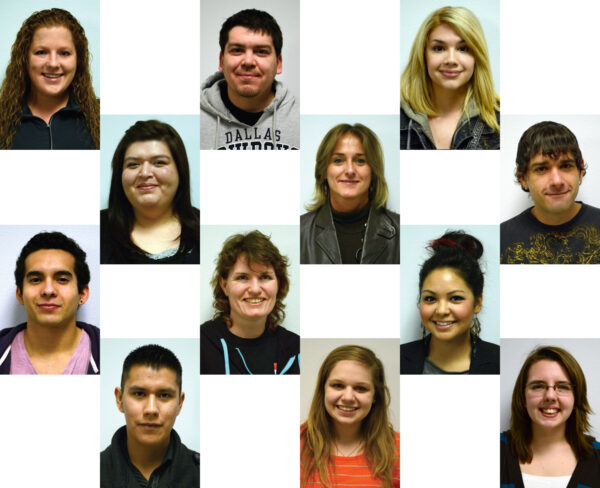
Education without understanding is like electronics without a power source: useless.
According to Wendell Willkie, “Education is the mother of leadership.” To be a great leader, one must have the knowledge, understanding and wisdom to know what is right, what is true, what is in the best interest of those being led and what can be done to improve any given situation. That is where ethics come in.
It is important for both students and faculty to behave in an ethical manner in any educational setting. Ethics in education can be a sticky subject because it means something different to each individual. However, some answers to ethical issues in education should be self-evident.
“If diplomas and certificates are to mean anything to the student or their future employers, then the diplomas and certificates must actually be a reflection of real knowledge gained and work performed,” said social sciences instructor Mary Dorsey.
According to various Amarillo College faculty members, teaching with ethics involves staying up-to-date on the subjects they are educating others about, presenting information in such a way as to allow students the freedom to question or disagree with their instructor without repercussions, setting and upholding standards of behavior, adapting teaching methods to meet the needs of their students, maintaining a simple and easy to understand method of calculating grades that holds all students to the same standard and only attributing points to a student’s grade which the student has earned by actually learning something.
Ethics are a set of values that guide one’s actions. “Values are like fingerprints,” singer Elvis Presley said. “Nobody’s are the same, but you leave ’em all over everything you do.“
When students do not perform honest work or put forth a real effort to learn, they cheat themselves and future employers who are looking for employees with real skills. A degree represents sufficient knowledge of the skills if it is acquired honestly.
“People who cheat in school often end up failing in life because they also try to get away with cheating in their jobs,” said pre-physical therapy student Marie Pendergrass.
Students should be writing their own papers, taking their own tests and notes and putting together their own projects or portfolios. Students would profit from investing their time and attention in gaining knowledge from those more knowledgeable than themselves. If they made a concerted effort to attend lectures and labs regularly, it would be reflected in their grades.
Students seem to be more aware of other students cheating the system than the instructors are. They acknowledge that it is an issue at AC that needs to be addressed, especially pertaining to online testing. Other people expressed strong feelings against some teachers who allow students to improve their grades based on non-learning-related, extra credit opportunities.
Students agreed that when participating in a group project, each individual should contribute his or her best work for the good of the whole. The consensus was that allowing one student to carry the rest of the group is unethical, lazy, dishonest and a shameful abuse of the system that puts undue strain on one person while granting others a license to cheat.
If educators attribute grades to students who have not earned them, it reflects poorly on them when a student is incapable of displaying the knowledge he or she allegedly gained under their tutelage. They also do the student a disservice because they leave them without the necessary tools they need to face circumstances in their lives, careers and future education. The need for remedial courses demonstrates this fact.
Amarillo College is not the only institution to face the problem. Dishonest practices are prevalent throughout the nation by both students and teachers from kindergarten through graduate school. For more information on cheating, you can access the Academic Cheating Fact Sheet or Google cheating at the college level.
Having the courage to say no, to face the truth and to do the right thing because it is right all are keys to living a life of integrity, according to author and businessman, W. Clement Stone. Leading with integrity, although difficult and trying at times, usually pays off in the end. Lead in such a way as to inspire those who follow to improve the path already hewn rather than discourage others from ever taking the path they have before them.
If at any time an individual is questioning whether a specific behavior would be ethical or not, it probably isn’t.
The late Gen. Norman Schwarzkopf said, ““The truth of the matter is that you always know the right thing to do. The hard part is doing it.” Don’t allow the idea of something being hard to achieve sway the mind into going against what conscience recognizes as right.
In the timeless words of Goethe, “Knowing is not enough; we must apply. Willing is not enough; we must do.”
Knowledge with inaction is fruitless, and action without willingness breeds contention. No one can force a person to have integrity or act with ethics.
Every individual must make that choice alone, and only then will he or she reap the benefits or consequences of the choice.

Leave a Reply